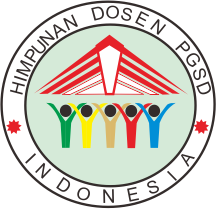THE INFLUENCE OF GUIDED QUANTUM MODEL APPLICATION TOWARD SOCIAL STUDIES ACHIEVEMENT REVIEWED FROM THE PARTICIPATION ON THE FOURTH GRADE STUDENTS SDN 2 SOKARAJA TENGAH
DOI:
https://doi.org/10.30595/dinamika.v6i2.912Keywords:
Academic Achievement, Guided Quantum Model, ParticipationAbstract
The purposes of this study were: 1) know the influence from the guided quantum model toward sosial studies achievement, 2) know the influence of the participation toward the sosial studies achievement, 3) the interaction using the guided quantum model, direct learning model and student’s participation toward the sosial studies achievement. This type of research is experimental research. The sampling that used in this research is the cluster random sampling technique. The population were the fourth grade students of SDN 2 Sokaraja Tengah that consist of two class, there’s IV A class as the experiment class and the IV B class as the control class. The sampling in the IV A class using the guided quantum model and the IV B class using direct learning model. The sampling is used a test and questionnaire. The data analysis is used two lane variance analysis. The result showed that, 1) the guided quantum model has an influence to student’s sosial studies achievement that proved with Fcolumn = 4,698> Ftable = 4,02significance column 0,048<0.05, 2) there’s an participation influence to the students achievement that proved Flane = 4,828> Ftable = 4,02 significance line 0,030< 0,05, 3) there’s no interaction between guided quantum model, direct learning and students participation toward sosial studies achievement that proved Finteraction = 0,828< Ftable = 4,02 interaction significance0,166> 0,05.References
Arifin, Z. (2011). Evaluasi Pembelajaran. Bandung: Remaja Rosdakarya.
Budiyono. (2009). Statistik Untuk Penelitian. Surakarta : UNS Press.
DePorter, dkk. (2010). Quantum Teaching. Bandung: Kaifa.
DePorter, dkk. (2009). Quantum Learning. Bandung: Kaifa.
Sapriya, Susilowati, Sadjoruddin Nurdin. (2006). Konsep Dasar IPS. Bandung: UPI PRESS.
Suryosubroto. (2009). Proses Belajar Mengajar di Sekolah. Jakarta: Rineka Cipta.
Downloads
How to Cite
Issue
Section
License
Authors who publish with this journal agree to the following terms:
Authors retain copyright and grant the journal right of first publication with the work simultaneously licensed under a Creative Commons Attribution License that allows others to share the work with an acknowledgement of the work's authorship and initial publication in this journal.
Authors are able to enter into separate, additional contractual arrangements for the non-exclusive distribution of the journal's published version of the work (e.g., post it to an institutional repository or publish it in a book), with an acknowledgement of its initial publication in this journal.
Authors are permitted and encouraged to post their work online (e.g., in institutional repositories or on their website) prior to and during the submission process, as it can lead to productive exchanges, as well as earlier and greater citation of published work (See The Effect of Open Access).

Dinamika Jurnal Ilmiah Pendidikan Dasar is licensed under a Creative Commons Attribution 4.0 International License.













